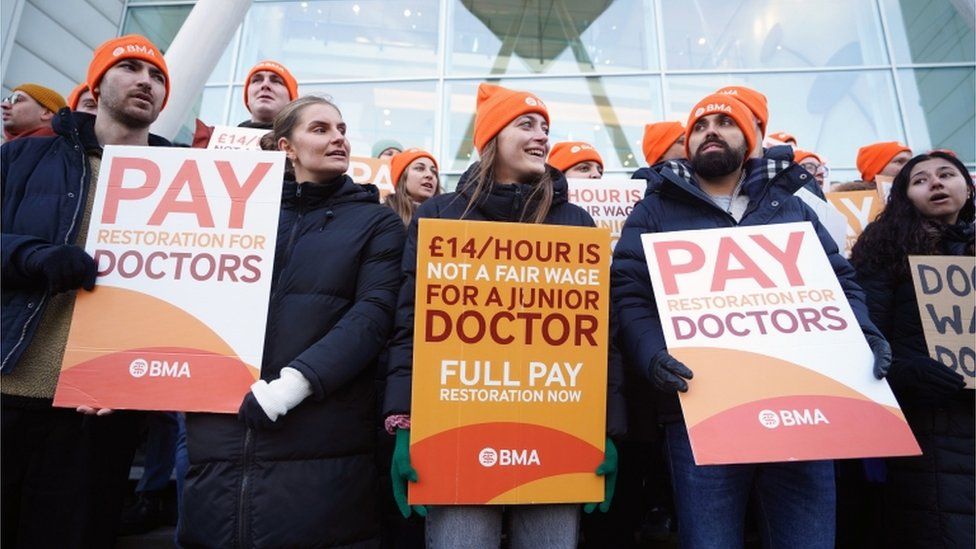
Junior doctors in England on Wednesday January 3, began the longest strike in NHS history as figures revealed that more than 337,000 appointments and operations had been cancelled in London due to the strike.
Thousands of medics in the British Medical Association
began a six-day walkout in hospitals across the country at 7am in a
bitter dispute over pay.
Health bosses fear that the strikes will affect almost all routine services as the NHS shifts its focus to urgent and emergency care.
It
comes after talks between Health Secretary Victoria Atkins and the BMA
broke down last month, with the Government insisting that negotiations
would not resume unless the union called off strike action.
Analysis by the Standard found that more than 337,000 inpatient and outpatient appointments had been rescheduled in London over a year of industrial action in the NHS.
It is by far the highest figure
of any region in England and accounts for more than a quarter (27.8 per
cent) of the 1.2 million operations and procedures cancelled nationally.
Barking, Havering, and Redbridge NHS Trust in east London said it had rearranged 1,373 outpatient appointments and 88 non-urgent surgeries.
The
NHS has warned that the strike action, which could see up to half of
the medical workforce in England walk out, could lead to “the most
difficult start to the year the NHS has ever faced”.
It said
emergency and urgent care will be prioritized during the strikes and
almost all routine care will be affected. But patients are being urged
to still come forward to seek care if they need it.
